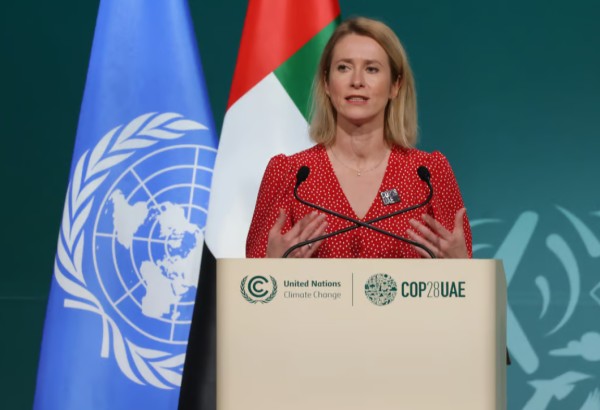
Kaja Kallas
Three French officials with direct knowledge of the talks on the future high representative of the Union for foreign affairs and security policy and vice president of the European Commission (HRVP) confirmed that Emmanuel Macron’s office has been eyeing Kallas to succeed current HRVP Josep Borrell. But all three also said the French president was keeping his options open.
“There’s a good understanding between Macron and Kallas, she’s well-liked and they’ve got similar points of view,” said an aide from Renew. The French president has energetically backed Kallas’ proposal to create a defense industry fund.
“She’s clearly seen as a strong personality of the Renew group. She’s a strong voice who has an impact beyond her country,” he added.
A senior Eastern European official, granted anonymity to share sensitive conversations, also said there was confirmation from Estonian counterparts about Macron’s preference for Kallas. “They said Macron gave his nod early this year,” the official said.
Kallas was in Paris for the French president’s conference on Ukraine aid in February and again in May for talks with Macron. During her most recent visit, she praised Macron’s speech on the future of Europe as “very, very good.”
But it’s far from a done deal.
EU members farther away from Russia have a widespread distrust of the Baltic region’s critical rhetoric on Russia. There is also a fear that Kallas would focus too exclusively on Russia, and not pay attention to the rest of the world.
“I see the logic of giving an Eastern European a top job,” said a southern European diplomat, but “we need someone who talks also about Africa, or South America, and not just about Russia.”
Advertisement / Reklaam
Advertisement / Reklaam
The high representative of the Union for foreign affairs and security policy and vice president of the European Commission chairs regular meetings of the EU’s 27 foreign, defense and development ministers, and represents the EU at G7 and G20 ministerial meetings. At present, the role is held by Spain’s Josep Borrell.But despite the grand title, the job involves little power in practice. While national foreign ministers often play a crucial role, the EU relies less on the HRVP to get things done and instead leans on this person’s boss, European Commission President Ursula von der Leyen.

